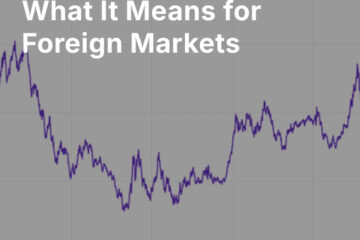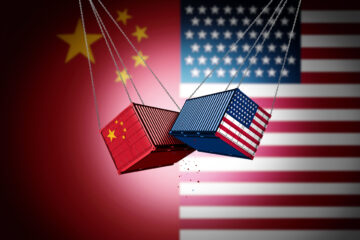The news is shifting. Covid-19 is still front and center, of course. As we noted last week, we think the pandemic’s development is not as alarming as many believe. With several months of data now available, it has become clearer that the virus’ risks are heavily skewed towards older individuals and those with particular chronic health conditions.
So far, covid-19 is far from reaching the overall impact even of the 1957/58 or 1968/69 flu pandemics. It is very, very far from reaching the impact of the catastrophic 1918 flu pandemic which was the benchmark of fear set by heavily discredited early projections like those from the Imperial College of London. To people under 40, and not suffering from a chronic health condition, covid-19 poses a minute mortality risk — notably less than the risk posed by a daily city or highway commute. Unlike flu, covid-19 causes almost no fatalities among infants or children.
We think that covid-19-driven stops and starts of economic closure and reopening will fade, and until a vaccine becomes available (if one does), protective measures will increasingly focus on vulnerable populations. Immunity will continue to gradually rise in the general population, and we believe the economy will recover more rapidly than many expect — especially with the remarkable combination of incredibly robust monetary and fiscal stimulus being implemented around the world, but especially in the U.S.
However, headlines are beginning to shift to other areas of attention that we think will become more prominent as the November election draws closer. The election is obviously significant in the current highly polarized political climate, and its potential outcomes will have important ramifications for investors, which we’ll be discussing in coming weeks. It will be a referendum on Donald Trump and the Trump administration, and/or on the political goals and economic proposals of its loudest critics. That “referendum” will probably focus on three basic areas: the administration’s handling of the coronavirus pandemic; its handing of the economy; and its handling of China. Today, we’ll discuss the last of these.
China Back In the Public Eye
From the beginning of the Trump administration’s aggressive stance with China, we believed that there were strong motivators for the two sides to reach an accommodation. The U.S. was calling out legitimately problematic behavior on China’s part — behavior that went against the country’s membership in the World Trade Organization, that hurt businesses and workers in the U.S. and around the world, and that violated the spirit, and often the letter, of many international economic and trade accords. Even though the Trump administration was already mired in controversy, this tough stance towards China won praise from many observers on both sides of the aisle who for years had been wanting to see tough action taken.
Still, we saw that China had so much to gain from improving its behavior that we thought it would compromise and get on board with the U.S. demands, which in the fine print were considerably more mild than the initial rhetoric. Alas, that has not happened.
We agree with the critical assessment of China’s behavior shared by many observers of all political stripes. We view the Chinese government as a staunch enemy of a global order based in liberty and the rule of law. China presents the world with a model of illiberal, authoritarian capitalism, in competition with the liberal, democratic capitalism of many countries, including the U.S. and its allies. China markets and exports that model aggressively to the developing world in the hope of expanding its geopolitical influence. In its near neighborhood, it uses direct military bluster and strongarm tactics against its neighbors to secure its sphere of influence. We think that it would be much to the detriment of planet- wide human welfare if Chinese totalitarianism gained ground against genuine democratic ideals. The pandemic has started to shift the global ground against China. We don’t want to venture into speculation about the origins of the novel coronavirus. Maybe the outbreak did originate through carelessness at the Wuhan Institute of Virology, as some credible researchers have hypothesized. But it is certainly becoming a widely shared view in the global community that China’s response to the outbreak was almost criminally inadequate, and that it flatfooted the rest of the world’s health authorities, permitting the virus to spread much more rapidly and widely than it would have if China had been more forthcoming early on. Global public opinion about China has turned decidedly cold as the pandemic has escalated.
China has responded to this “change in the weather” by rattling the same rusty sabers that it has been rattling for years. Most recently, this has meant promoting models of growth for itself that focus inward, and doubling down on the development of its domestic consumer economy. This consumer economy is growing, but is still very far from maturity or self-sufficiency as a growth engine for the Chinese economy as a whole. China has also talked up its preparations to survive various severe tactics that the U.S. could deploy in order to strike at the Chinese economy and financial system if things got really ugly. Those preparations mean once again pushing the notion that the yuan could become a global currency to challenge the hegemony of the U.S. dollar and reduce China’s huge need for dollar reserves.
The truth is that such ideas are fantasy and bluster. As we have pointed out to our readers consistently for years, the yuan — which represents a tiny 2% of global FX reserves — cannot become a global reserve currency while China still has a closed financial system. And China cannot open its financial system without relinquishing top-down control of its economy (and indeed, of its politics). The Chinese yuan is many decades away from “world reserve currency” status — if in fact it could ever get there without a Chinese political revolution in favor of liberal democracy, which does not appear to be in the cards. Indeed, the Chinese government’s draconian evisceration of Hong Kong’s sovereignty in the face of international opposition shows that it is less willing than ever to tolerate an open society. Such an open society is an existential threat to the continued rule of the Chinese Communist Party.
China and the U.S. Elections
This week, the Trump administration moved to rescind U.S. recognition of the South China Sea as Chinese territory, and opened the door to visa restrictions on Chinese corporate executives whose companies facilitate human rights violations. President Trump also signed the Hong Kong Accountability Act and formally ended preferential U.S. treatment for Hong Kong by executive order. We predict that the role played by China in the U.S. election will only escalate tensions. Election rhetoric from both sides will consist of variations on the theme that “we will be harder on China than they will be.” Voters will have to make up their minds on the basis of both sides’ track records who is making the more plausible case.
What is important is that whoever wins the White House, and whichever party keeps or wins power in Congress, the victor conasistently implements a high-pressure policy on China. Americans should hope that whoever is elected in Washington DC (at all levels of government) understands the China issue. We believe that the Chinese government has shown for decades that it has a single overriding guiding principle — even if it has warring blocs within the machinery of its ruling party. That guiding principle is to seek hegemony, whether within or outside of accepted structures of international law, economic treaty, or established global order. All public niceties and assurances to the contrary, China will pursue this agenda, taking advantage of the weakness or gullibility of its trading and dialogue partners, unless it is met with a principled, firm, and unyielding response.
Investment implications: Much of the developed world has suffered from Chinese trade malfeasance over the decades since the country’s accession to the World Trade Organization, and China’s geopolitical aggressiveness suggests even bigger problems could be in store if unchecked — particularly from technology theft in the race to develop AI and other transformative technologies. As elections draw closer, investors will have to judge whether the party that looks poised for victory is more or less likely to keep the pressure on for the next four years. A weak response to China, in terms of economics, geopolitics, intelligence, security, and technology, will be a net negative for the robustness of economic growth in the liberal democratic world.




3 Comments
Steve van Damme · July 21, 2020 at 5:34 pm
From the reports, studies and clinical observations I’ve read and and heard, there are some important gaps in the information apparently used to create this assessment. Here is something more to think about and take into account because it can have an economic impact down the road.
#1 The death rate is what everyone talks about. But even as tragic as a death is, it is not the only issue that is emerging as the danger of Covid-19, it is the permanent damage that is done to those who “recover.” Many seem to think that “recover” means you don’t die, so it’s OK to be infected, no big deal. Yet there is growing evidence that even those who have minimal or even no symptoms are found to have some permanent damage to the lungs, liver, kidneys, heart, and even the brain, possibly even the liver. The statistics on how many have significant permanent damage is still unclear because unlike the visible damage one can survive from polio, these Covid-19 effects are nearly all internal. People don’t realize they have them (unless they notice reduced lung capacity or continuing mood changes). Also unlike polio damage, the damage from Covid-19 can impact the future demands on the already heavily burdensome healthcare system on the economy in terms of costs and lost productivity.
It’s also been found, as mentioned, that co-morbidities has a great deal to do with one’s chances of surviving an infection. Some of those co-morbidities are part of the systemic problems that allow such a pandemic to become dangerous. Various types of pollution are known to weaken the lungs, gut, kidneys, hormonal system, natural detoxification system, even the brain, adding up to making immune response weaker in the population. Much of this pollution can be prevented, if there is a political will. These systemic causes must be addressed or the health of the population will just continue to weaken the economic output in the future. Young people seem to “get” this so there is some hope.
#2 Herd immunity requires antibodies that last a long time to be of much effect, at least 1 year minimum. There are already reports of people recovering from Covid-19 symptoms completely, tested as negative, and then getting reinfected, all within 100 days. That is not only NOT much of
a useful immunity, it bodes poorly for the hope of any useful vaccine, because that is what vaccines are supposed to do. However it does bode fabulous news for the companies that would like to take advantage of this by convincing people to get immunized every 3 months, I’m sure Bill Gates finds this a wonderful option to get even more rich through his investments in vaccine companies and his foundation scam promoting vaccines, and the generated fear of not having them.
#3 Personally taking responsibility for your own immune system’ integrity and overall health is the best way to survive this pandemic. If some are forsaking their personal responsibility to strengthen their own immune system, then there will always be a spreading of this kind of virus, or any virus, and the resulting hysteria and demand for vaccines that are trying to chase something that is constantly evolving. The BEST solution is that the government and media stop promoting this foolish, outrageously expensive, and arguably largely ineffective idea of vaccines and EDUCATE THE PUBLIC how to strengthen their immune systems to maintain their physiological defenses rather than resigning themselves to the potential damage of yet another vaccine. Those that keep leaving it up to the medical industry to “fix” their health problems instead of PREVENTING these health problems from getting out of control, well, they’re not going to last too long, and if they do, they might regret the reduced condition of health they end up in.
FYI, these nutrients are all particularly essential for immune function and response: Vitamin C, Vitamin D3, zinc, magnesium, selenium.
Most people are deficient in one or more of those nutrients. The first thing you can do is get tested to find out if you are deficient, and then educate yourself about what foods you need to supply more of those nutrients. Food sources are best. Beyond what our degraded food system can supply, a supplement might be needed.
Getting sufficient exercise is essential. Even a ½ hour walk makes a big difference.
Getting plenty of sleep to wipe away fatigue is also important. Your immune system can’t work well if the work the body does during sleep to wash away fatigue and stress isn’t enough.
It should be obvious that a strong economy is dependent on healthy individuals contributing to it. STRENGTHENING IMMUNITY AND OVERALL HEALTH should be the NATIONAL emphasis going forward. Don’t be distracted by the false hopes of vaccines or be hysterical about going out in the sunshine for some vitamin D. Take responsibility, educate yourself, build your health, be prudently careful, and help others to do the same so everyone can contribute and prosper. That’s the only intelligent way out of the malaise we find the economy in now. It’s the lesson of the moment that is still being largely ignored by ALL the media.
Rudi von Abele · July 21, 2020 at 7:08 pm
Thanks for your comment, Steve; your points are good ones. In earlier notes we have discussed the significance of co-morbidities in overall mortality. We have looked into the potential longer-term sequelae of infection and survival but have not yet found compelling data on the topic. We will likely write soon on the topic of the durability of immune response; we also have seen the recent data suggesting that it is less durable than hoped. And your third point is especially well-taken. It’s critically important for the self-reliant and self-aware to educate themselves, and there are many resources available for those who are willing to research a little outside the mainstream box.
Michael J · July 23, 2020 at 6:09 am
Well said Stephen!
Comments are closed.